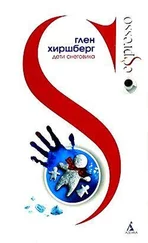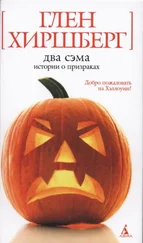Even the streetlights were gone, and the dark pier jutted crookedly over the quietly lapping water like the prow of a beached ship. No magician's hat. Nothing on the pier at all. Overhead, I saw stars, faint and smeared by the smog, as though I were viewing them through a greasy window. Behind me, the new old city, safely shut down and swept clean for the night, rocked imperceptibly on its foundations. A wind kicked up, freezing cold, and I clamped my arms to my chest and crouched beside my car and wished I'd remembered a jacket, at least.
Finally, I let myself think it. Sort what I'd been hoping. Which had been what, exactly? That I'd find the auctioneer still here? That the movers would still be emptying the last pieces out of the warehouse, and maybe I could …
"What?" I said aloud, and slammed my palms against the pavement and scraped them badly. Do what? Pick up my friend's body like a cigar store Indian, tie him to the top of the car, bring him to our house, which he'd never seen, and prop him on our little porch in our choice of vests? Maybe bring along a poodle-skirt woman so we could make set pieces?
Staggering to my feet, I took a huge breath and let the ocean air cut my lungs. In my pocket, I realized, I'd jammed the newspaper article, and I removed it now, uncrumpled it, ripped it to pieces, and set the pieces flying. Rebecca could never see that article, could never know what I was thinking. It was bad enough — it was flat, fucking murder — that we'd left Ash down here. I didn't even want to imagine how she'd react when she realized what really might have happened to her father.
How did it work, I wondered? Were Rooff's ghosts, or machines, or whatever they were, selective about the company they brought him? Had they let us go, or had we refused? Had Ash known, before it was too late, that he had a choice? Had the rest of them — the rollergirl, the flag man, the kid, maybe even Rebecca's father — chosen to stay, because it was bright and musical and happy in there, and smelled of the sea?
It was almost light when I fumbled my car door open and collapsed back into the driver's seat. I could be wrong, I thought. I could go home right now and find Rebecca with the kitchen phone dangling from her ear, smiling in the way she didn't anymore as Ash told her where he'd vanished to this time and she spooned minced carrots to our child. But I didn't think so.
Not until I was off the freeways again, just pulling into our little driveway, did it occur to me to wonder where, exactly, Rooff's last merry-go-round stopped. At the edge of the white curtain? Or at the end of the pier? The ray could have been part of it, and the fishermen, and the beggars, too. Or maybe they'd just wanted to be.
I stepped out of the car, felt the stagnant L.A. air settle around me. The rising sun caught in my neighbor's windows, releasing tiny prisms of colored light, and somewhere down the street, wind-chimes clinked, though there was little wind. And the feeling that whispered through me then was indeed magical, terrible, and also almost sweet. Because I realized I might be underestimating the power of Rooff's last carousel, even now. We could be on it, still — Rebecca, me, the whole crazy, homogenizing coast — bobbing up and down in our prescribed places as our parents die and our friends whirl past and away again and the places we love evaporate out of the world, the way everyone's favorite people and places inevitably do. Until, finally, we are just our faces, smiles frozen bright as we can make them, hands stretching for our children because we can't help but hope they'll join us, hope they'll understand before we did that there really may be no place else to go or at least forgive us for not finding it. Then they'll smile back at us. Climb aboard. And ride.
Author Biography and Bibliography
Glen Hirshberg was born in Detroit, Michigan, and grew up in San Diego. He attended Columbia University, where he won the Bennett Cerf Prize for Best Fiction, and graduated cum laude in 1988. In 1991, he completed both his M.F.A. and M.A. at the University of Montana, where he was a Fiction Fellow and won a Bertha Morton Scholarship for Outstanding Graduate Work.
For the past decade, Glen has lived in Galway, Seattle, Charlotte, and Los Angeles, where he lives today with his wife, folklorist Kim Miller, son Sid, and daughter Kate. He has taught at both the university and high school levels, and is currently Humanities Department Chair and Director of Creative Writing at Campbell Hall in Studio City. Glen Hirshberg's work has appeared in numerous anthologies, including The Year's Best Fantasy and Horror, Best New Horror, and Dark Terrors 6, and has received multiple International Horror Guild and World Fantasy Award nominations. His novel The Snowman's Children was published by Carroll & Graf last year, and a collection of his stories, The Two Sams (also Carroll & Graf), will be published in October. He is currently at work on a new novel and another set of ghost stories.








